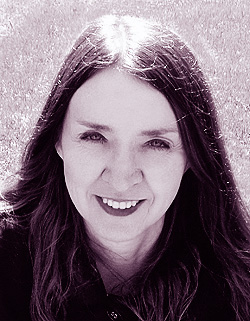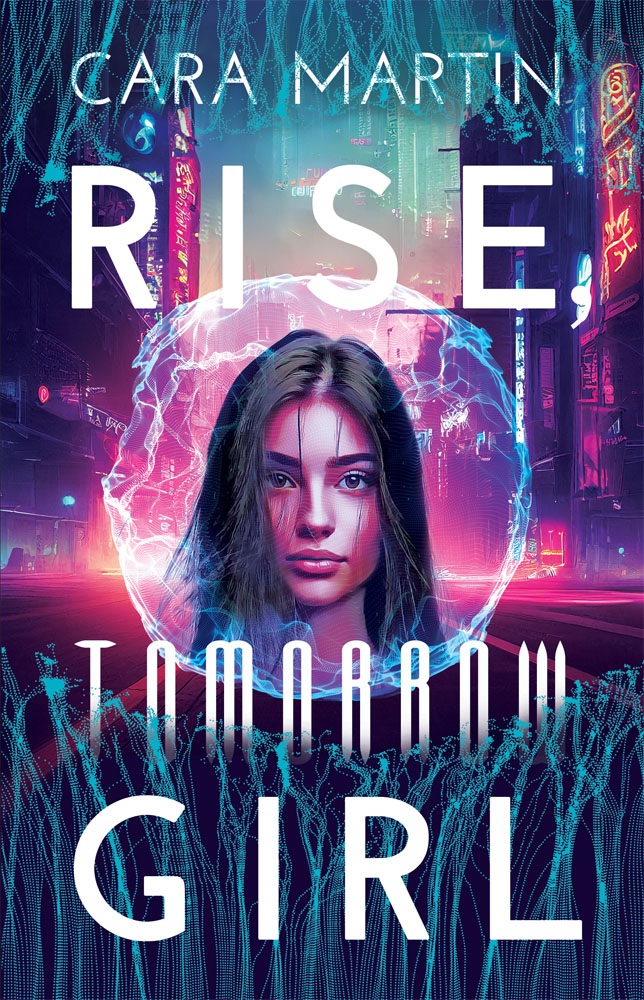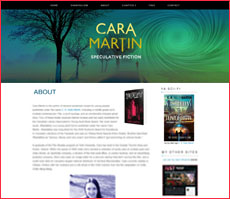My young adult novel, I Know It’s Over, tells the story of sixteen-year-old Nick, who learns on Christmas Eve that his ex-girlfriend Sasha is pregnant. He’s panicked and has certain feelings about how they should react to the situation. Those feelings evolve during the course of the novel but when it comes down to it, the choice isn’t his to make – it’s Sasha’s.
This is a choice that women in many countries don’t legally hold but a choice they insist on exercising regardless. Legally or illegally. Safely or unsafely. Their bodies. Their choice. A report by the Guttmacher Institute and World Health Organization published in 2007 studied worldwide abortion trends from 1995 to 2003. It found that abortion rates are almost identical in developed and developing regions of the world, but that “abortion is generally safe where it is broadly legal and mostly unsafe where restricted.” Globally almost half of abortions are unsafe, resulting in the deaths of 70,000 women each year. A further five million suffer permanent or temporary injury.
With a lack of options at hand, women will do their best to create them, despite the risks. Don’t they deserve choice without risking personal harm?
According to Guttmacher Institute data the majority of American women (61%) who have abortions already have children (1). Almost half of pregnancies among U.S. women are unintended and four out of ten choose not to continue the pregnancy (2). One in three American women will have had an abortion by the age of forty-five (3).
Unwanted pregnancy isn’t rare. It’s something that touches all of our lives, whether we’re aware of it or not. It happens to our friends, our mothers, ourselves, and I have faith in women and girls to know what's best for them, whether that's terminating an unplanned pregnancy, raising a child or giving a baby up for adoption. Anyone who thinks the choice is easy hasn't sat with an anguished friend (or daughter, sister, wife or girlfriend) as they struggled to make that decision.
Ireland has even less regard for its female citizens' ability to make decisions about their own bodies. Abortion is illegal even in cases of threatened suicide and only permitted when a woman's life is threatened by grievous medical risk. This has resulted in a steady stream of Irish women (approximately 7,000 a year, the majority of whom are married and already have children) traveling to Great Britain for abortions.
I believe Irish women shouldn't have to travel to exercise choice. I don't believe women anywhere should be subjected to unsafe, possibly fatal abortions because you or I may not agree with their choice to terminate. On this side of the Atlantic, I hope we never see Roe v. Wade overturned or watch Canada abolish legal abortion but we can't afford to be complacent and assume this will never happen. We saw how reproductive health options in the United States narrowed under George Bush’s government as he loaded the supreme court with anti-choice judges; championed abstinence only education which keeps young people in the dark concerning accurate information about preventing pregnancy and avoiding sexually transmitted infections; and reinstated the Global Gag Rule which blocks access to birth control to thousands of women around the world. At home 87% of all U.S. counties have no identifiable abortion provider.
But choice isn’t just about access to safe, legal abortions. It’s about health, information and real options, and it’s of the utmost importance that we vote in governments that support all of these and that we continue to call attention to these issues and don’t allow them to fall through the cracks. We need to vote for and hold to account governments that will support the wide availability of emergency contraception to prevent pregnancy, comprehensive sex education (we already know the abstinence only variety doesn't work!), committed anti-violence (a 2007 study found that that a quarter of teenage girls with histories of abusive relationships said that their abusive partners had “tried to get them pregnant by manipulating condom use, sabotaging birth control, and making explicit statements about wanting them to become pregnant.”) and anti-poverty strategies and access to affordable contraception and medical treatment for all women. We need to lobby for changes that will ensure the minimum amount of women possible suffer unwanted pregnancies and that every woman who wishes to keep her baby will be assured of good health care and not be condemned to poverty by her choice.
And in the inevitable event that women suffer unwanted pregnancies despite the implementation of the above safeguards (because the reproductive years are long, mistakes happen and sometimes sexual assault denies women a choice) we need to allow women access to safe abortions, not punish them by forcing them to have unwanted children or in effect push them into back alley procedures. Criminalizing abortion doesn’t stop it but it does place women’s well-being – and sometimes their very lives – at risk. We don’t have to feel that we’d make the same choice about a pregnancy as someone else to support a woman’s right to choose. With what’s at stake how can we possibly afford not to support choice?
With a lack of options at hand, women will do their best to create them, despite the risks. Don’t they deserve choice without risking personal harm?
According to Guttmacher Institute data the majority of American women (61%) who have abortions already have children (1). Almost half of pregnancies among U.S. women are unintended and four out of ten choose not to continue the pregnancy (2). One in three American women will have had an abortion by the age of forty-five (3).
Unwanted pregnancy isn’t rare. It’s something that touches all of our lives, whether we’re aware of it or not. It happens to our friends, our mothers, ourselves, and I have faith in women and girls to know what's best for them, whether that's terminating an unplanned pregnancy, raising a child or giving a baby up for adoption. Anyone who thinks the choice is easy hasn't sat with an anguished friend (or daughter, sister, wife or girlfriend) as they struggled to make that decision.
Who are you or I to tell any woman what's in her best interest? What freedom does she have without the core right of bodily integrity? Yet many governments feel this most personal decision isn't one a woman should have. Several countries that consider themselves democracies have tried to curtail choice or cut if off completely. In the United States many individual states have severely restricted access to abortion procedures. In Canada, a country which currently has no criminal law restricting abortion, the province of Prince Edward Island refuses to provide any abortion services, meaning women must travel to neighboring provinces for procedures. Abortion is legal in New Zealand, but only if two certifying consultants agree that a pregnancy will either physically or psychologically endanger a woman's health.
Ireland has even less regard for its female citizens' ability to make decisions about their own bodies. Abortion is illegal even in cases of threatened suicide and only permitted when a woman's life is threatened by grievous medical risk. This has resulted in a steady stream of Irish women (approximately 7,000 a year, the majority of whom are married and already have children) traveling to Great Britain for abortions.
I believe Irish women shouldn't have to travel to exercise choice. I don't believe women anywhere should be subjected to unsafe, possibly fatal abortions because you or I may not agree with their choice to terminate. On this side of the Atlantic, I hope we never see Roe v. Wade overturned or watch Canada abolish legal abortion but we can't afford to be complacent and assume this will never happen. We saw how reproductive health options in the United States narrowed under George Bush’s government as he loaded the supreme court with anti-choice judges; championed abstinence only education which keeps young people in the dark concerning accurate information about preventing pregnancy and avoiding sexually transmitted infections; and reinstated the Global Gag Rule which blocks access to birth control to thousands of women around the world. At home 87% of all U.S. counties have no identifiable abortion provider.
But choice isn’t just about access to safe, legal abortions. It’s about health, information and real options, and it’s of the utmost importance that we vote in governments that support all of these and that we continue to call attention to these issues and don’t allow them to fall through the cracks. We need to vote for and hold to account governments that will support the wide availability of emergency contraception to prevent pregnancy, comprehensive sex education (we already know the abstinence only variety doesn't work!), committed anti-violence (a 2007 study found that that a quarter of teenage girls with histories of abusive relationships said that their abusive partners had “tried to get them pregnant by manipulating condom use, sabotaging birth control, and making explicit statements about wanting them to become pregnant.”) and anti-poverty strategies and access to affordable contraception and medical treatment for all women. We need to lobby for changes that will ensure the minimum amount of women possible suffer unwanted pregnancies and that every woman who wishes to keep her baby will be assured of good health care and not be condemned to poverty by her choice.
And in the inevitable event that women suffer unwanted pregnancies despite the implementation of the above safeguards (because the reproductive years are long, mistakes happen and sometimes sexual assault denies women a choice) we need to allow women access to safe abortions, not punish them by forcing them to have unwanted children or in effect push them into back alley procedures.
Criminalizing abortion doesn’t stop it but it does place women’s well-being – and sometimes their very lives – at risk. We don’t have to feel that we’d make the same choice about a pregnancy as someone else to support a woman’s right to choose. With what’s at stake how can we possibly afford not to support choice?
- See more at: file:///C:/Users/Acer/Documents/ckkellymartinweb/archive2112.htm#sthash.Nq3Fvoxb.dpuf
With a lack of options at hand, women will do their best to create them, despite the risks. Don’t they deserve choice without risking personal harm?
According to Guttmacher Institute data the majority of American women (61%) who have abortions already have children (1). Almost half of pregnancies among U.S. women are unintended and four out of ten choose not to continue the pregnancy (2). One in three American women will have had an abortion by the age of forty-five (3).
Unwanted pregnancy isn’t rare. It’s something that touches all of our lives, whether we’re aware of it or not. It happens to our friends, our mothers, ourselves, and I have faith in women and girls to know what's best for them, whether that's terminating an unplanned pregnancy, raising a child or giving a baby up for adoption. Anyone who thinks the choice is easy hasn't sat with an anguished friend (or daughter, sister, wife or girlfriend) as they struggled to make that decision.
Who are you or I to tell any woman what's in her best interest? What freedom does she have without the core right of bodily integrity? Yet many governments feel this most personal decision isn't one a woman should have. Several countries that consider themselves democracies have tried to curtail choice or cut if off completely. In the United States many individual states have severely restricted access to abortion procedures. In Canada, a country which currently has no criminal law restricting abortion, the province of Prince Edward Island refuses to provide any abortion services, meaning women must travel to neighboring provinces for procedures. Abortion is legal in New Zealand, but only if two certifying consultants agree that a pregnancy will either physically or psychologically endanger a woman's health.
Ireland has even less regard for its female citizens' ability to make decisions about their own bodies. Abortion is illegal even in cases of threatened suicide and only permitted when a woman's life is threatened by grievous medical risk. This has resulted in a steady stream of Irish women (approximately 7,000 a year, the majority of whom are married and already have children) traveling to Great Britain for abortions.
I believe Irish women shouldn't have to travel to exercise choice. I don't believe women anywhere should be subjected to unsafe, possibly fatal abortions because you or I may not agree with their choice to terminate. On this side of the Atlantic, I hope we never see Roe v. Wade overturned or watch Canada abolish legal abortion but we can't afford to be complacent and assume this will never happen. We saw how reproductive health options in the United States narrowed under George Bush’s government as he loaded the supreme court with anti-choice judges; championed abstinence only education which keeps young people in the dark concerning accurate information about preventing pregnancy and avoiding sexually transmitted infections; and reinstated the Global Gag Rule which blocks access to birth control to thousands of women around the world. At home 87% of all U.S. counties have no identifiable abortion provider.
But choice isn’t just about access to safe, legal abortions. It’s about health, information and real options, and it’s of the utmost importance that we vote in governments that support all of these and that we continue to call attention to these issues and don’t allow them to fall through the cracks. We need to vote for and hold to account governments that will support the wide availability of emergency contraception to prevent pregnancy, comprehensive sex education (we already know the abstinence only variety doesn't work!), committed anti-violence (a 2007 study found that that a quarter of teenage girls with histories of abusive relationships said that their abusive partners had “tried to get them pregnant by manipulating condom use, sabotaging birth control, and making explicit statements about wanting them to become pregnant.”) and anti-poverty strategies and access to affordable contraception and medical treatment for all women. We need to lobby for changes that will ensure the minimum amount of women possible suffer unwanted pregnancies and that every woman who wishes to keep her baby will be assured of good health care and not be condemned to poverty by her choice.
And in the inevitable event that women suffer unwanted pregnancies despite the implementation of the above safeguards (because the reproductive years are long, mistakes happen and sometimes sexual assault denies women a choice) we need to allow women access to safe abortions, not punish them by forcing them to have unwanted children or in effect push them into back alley procedures.
Criminalizing abortion doesn’t stop it but it does place women’s well-being – and sometimes their very lives – at risk. We don’t have to feel that we’d make the same choice about a pregnancy as someone else to support a woman’s right to choose. With what’s at stake how can we possibly afford not to support choice?
- See more at: file:///C:/Users/Acer/Documents/ckkellymartinweb/archive2112.htm#sthash.Nq3Fvoxb.dpuf















